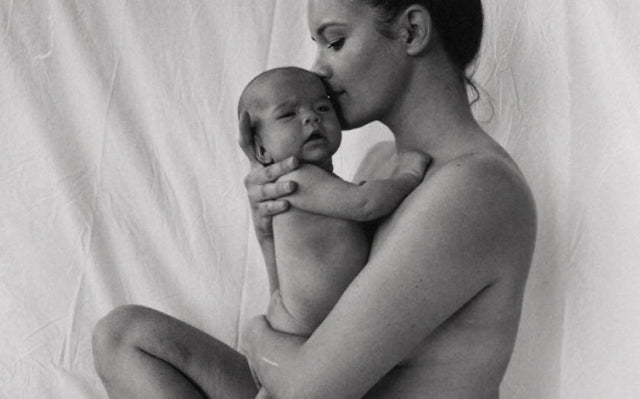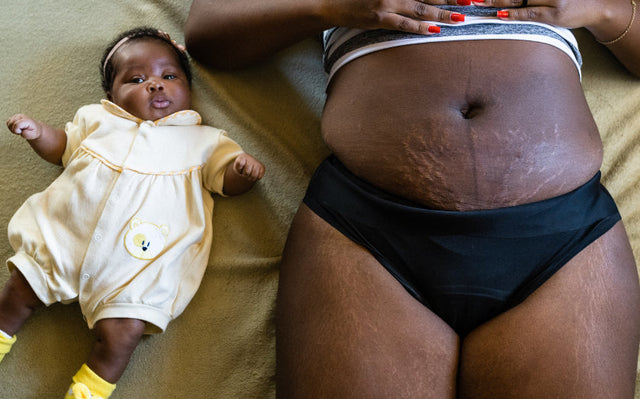Your first period after miscarriage: timing, tips and support
Experiencing a miscarriage is devastating in many ways. The psychological stress alone can feel like a lot. It’s important to be kind and gentle with yourself and seek support from loved ones if needed.
Your body will also need time to adjust, which can mean your first period after miscarriage may feel a bit different.
Knowing what to expect during this time can help to keep any uncertainty and anxiety at bay. To hopefully put your mind at ease, we’ve answered some common questions about menstruation after early pregnancy loss – providing you with some tips for navigating your recovery.
How long after a miscarriage do you get your period?
According to fertility expert and gynaecologist Dr Raewyn Teirney, your first period after miscarriage may be delayed.
“After a miscarriage, it’s common for your period to arrive 1–2 weeks later than you’re expecting,” she says. “This is because the pathways between the brain, ovaries and uterus need some time to realign.”
As a general rule of thumb, your body’s hormones should return to pre-pregnancy levels in 4–6 weeks. Once they have, your menstrual cycle should resume as normal.
That said, every body is different, and the timing of your first period after miscarriage will depend on how regular your cycle typically is. If your cycle tends to be irregular, your period might take longer than 6 weeks to arrive.
How long will my first period after a miscarriage last?
The length of your first period after miscarriage will vary from person to person and depends on a few factors, including:
- Hormonal changes
- How your uterus is healing
- Your stress and trauma levels
- What’s typical for you
“Your period should naturally go back to whatever the normal thickness of your endometrium is,” Dr Teirney says. “So your menstrual cycle should return to its normal state before you were pregnant.”
That said, your first period after miscarriage may last a bit longer than normal, be a bit lighter or heavier than you’re used to, or be accompanied by discharge with a strong odour. This is usually nothing to worry about.
If your first period is very light or you only get spotting, check in with your doctor. It could be the result of your D&C (dilatation and curettage) procedure if you had one.
“If you’ve had a D&C, adhesions can form in the uterus,” Dr Tierney explains. “As a result, your periods may be a lot lighter because your uterus lining can’t get as thick.”
Is it normal to find clots in your first period after a miscarriage?
During the first few periods after miscarriage, you might notice some blood clots. This is totally normal, so no need to panic.
During menstruation, your body produces anticoagulants to thin the blood and tissue that makes up the lining of your uterus. Clots can form, if the flow of this lining (i.e. your period) outpaces your body’s ability to produce these anticoagulants.
As long as the clots are small, there’s no cause for concern. But if they’re bigger than a 50-cent coin, come with heavy bleeding or continue to appear during your period, speak to your doctor about it.
“Regular clotting should be investigated as it could indicate an infection in the uterus or another issue,” Dr Teirney says.
Managing your first period after miscarriage
Miscarriage can be a challenging experience for both your body and your mind. Here’s a few things to be mindful of:
- Having sex might be painful. Communicate with your partner and only do what feels comfortable
- Opt for absorbent period underwear instead of tampons that might be uncomfortable to insert
- Wear a comfortable, supportive bra and underwear (like the super soft briefs from our Classic range)
- Place a heat pad or hot water bottle on your belly to ease the pain
- Take medication like paracetamol or ibuprofen to relieve pain or cramping
- Try breathing exercises or meditation if you’re feeling stressed
- Take extra time to rest and relax, if you can. Be gentle with yourself.
Remember, if your period is very painful, heavier than normal or never comes, call your doctor straight away.
Keen to explore more health topics? Head over to our blog for a treasure trove of insights and guidance.








